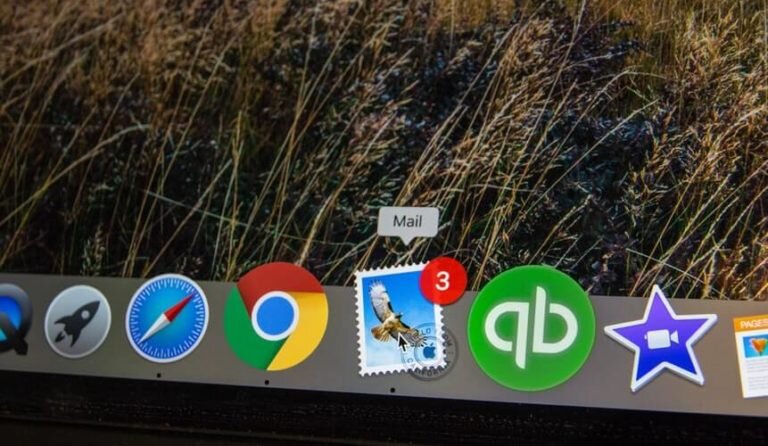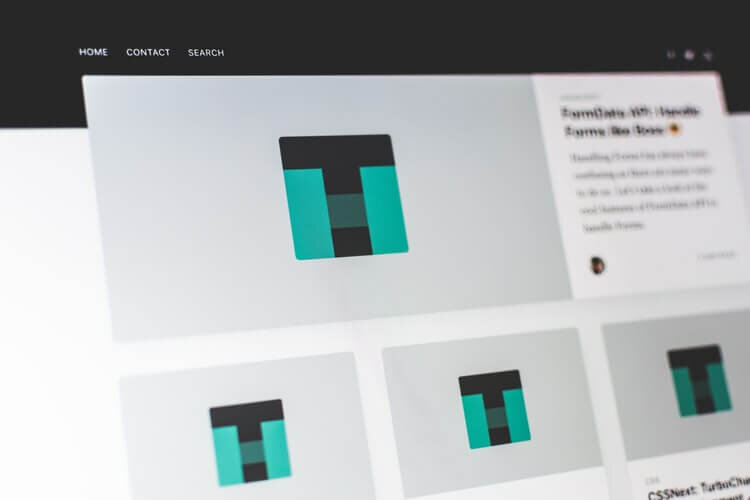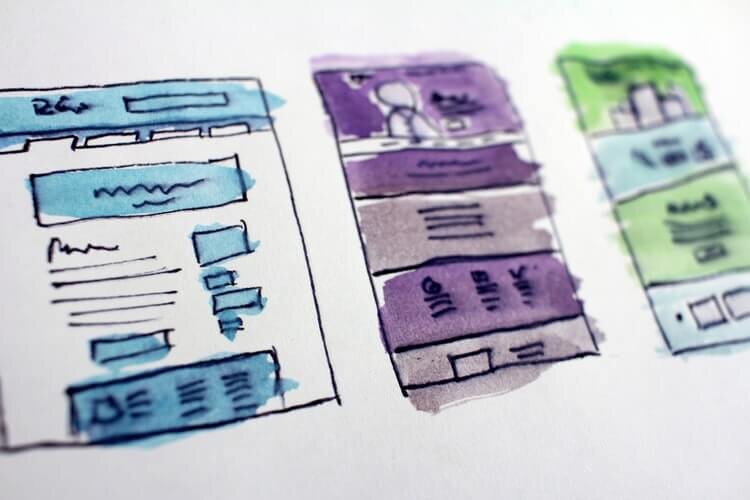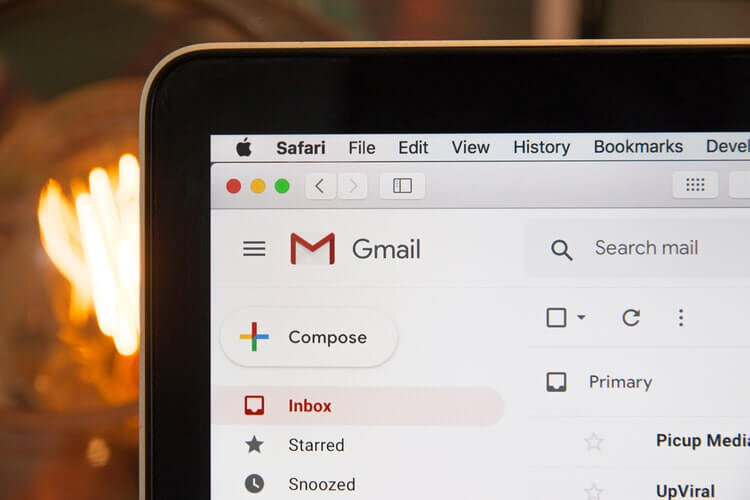How To Create a Music Website (13 Tips)
April 30, 2020
One thing we teach in our course, The Art of the Song Pitch, is the importance of having a website or some kind of online presence. It’s a great way to introduce (new) fans to you & your music once they discover you after hearing your song synced in a TV show or film.
If you don’t have a website or need a better one that’s EASY and CHEAP, then keeping reading for these great tips to get you started. This blog was originally posted on our sister site, Sundown Sessions Studio, but we thought it would be helpful to our sync community too.
*********************
In the current music industry, having a strong web presence can make or break your career. However many artists overlook the importance of creating a well designed website for their music.
There are a lot of factors to consider when designing one. From conceptualizing the style and functionality, to actually building it, creating a music website is a daunting task. If you’re not a tech savvy person, doing so from scratch may seem near impossible.
Due to this, many indie artists never create a website for their music, which can really put a damper on their career.
When someone wants to find out more about an artist, a website is the perfect way to present everything in a professional package. Not having one makes it near impossible to leave a good first impression.
Thankfully, there are plenty of easy ways to go about building a professional, eye-catching website. In this guide we’re going to break down our top 13 tips to consider when you set out to create a music website.
1. Register a Domain Name
As early on as possible in your band’s career, register a domain name for future use. Even if you haven’t begun playing shows or recording music yet, registering it future proofs you and ensures it won’t be taken by someone else.

If you haven’t chosen a name for your act yet, the domain names availability can be a contributing factor to the decision process. This is because you want your domain name to be as memorable and straightforward as possible.
If www.yourartistname.com isn’t available, try adding something like “band”, “music” or “official” onto the end. For example, it may end up being www.yourartistsnameofficial.com. While this isn’t as ideal as only using your name, it’s still memorable and self-explanatory.
Keep in mind that your domain name is best if it matches or comes close to your social media handles. This way fans only have to remember one thing when they’re trying to find you online.
Although there are other options out there other then .com, it’s still the best way to go. If someone forgets the suffix to your domain name, they’re going to automatically assume it’s .com and the last thing you want is for them to end up on the wrong site.
If you’ve registered a domain name but aren’t planning to create a music website anytime soon, you can still redirect it to another place online. This could be your social media accounts, a music streaming profile or a coming soon page with an email sign up.
2. Utilize A Professional Email
Even if you haven’t created a website yet, once you’ve registered your domain name, you should be able to set up a custom email to handle music communications.

This is an email ending in “@yourdomain.com”, rather than @gmail.com or something similar. Although it’s a small thing, it makes a world of a difference when it comes to contacting industry professionals.
Doing so will help you appear more professional and make you stand out from other indie artists.
Likewise, when embedding contact information on your website, only include emails ending in your domain for all communications.
3. Use a DIY Platform To Create Your Site

Nowadays, you don’t have to be a tech genius in order to create an awesome website for your music. There are plenty of platforms out there that make it easy to design a professional looking site with little effort.
Below are some of our top suggestions to try first, if you plan on going this route.
WordPress

This can be one of the cheapest ways to create a website if you plan on self-hosting the site with a web hosting provider.
It’s a piece of software you can install onto your server for free, which allows you to design websites and utilize thousands of free themes and plugins.
It was originally created as a blogging platform, but eventually became a tool to create any style of website. Because it’s a free option with many possibilities, it can be a little more finicky than other avenues. However, since it’s been around so long that there’s plenty of help and tutorials online if you get stuck.
Squarespace

Squarespace is an externally hosted website designer, meaning they host the site for you. The downside to this is that you’re locked into their pricing scheme for domain registration and website hosting.
However, the ease of use and clean designs that are possible make Squarespace worthwhile. This is one of the major benefits to designing your website on a paid platform. Everything always works and if you get lost, there’s a support team ready to help you.
It’s extremely intuitive, but may not be as flexible as something like WordPress. However, you’re still presented with more than enough features to create everything that’s required in a music website.
Wix

Much like Squarespace, Wix is an intuitive, to the point website designer that’s externally hosted.
They offer hundreds of more themes than Squarespace, you can even design your own themes from scratch. There’s also a fair amount of additional features and flexibility, that Squarespace doesn’t present.
However, like WordPress, this flexibility may be more than what’s necessary for creating a music website. All the additional features can make the design process a little more cumbersome as well.
With that in mind, if you want a website designer with the possibilities of WordPress, but the all-in-one, externally hosted ease of Squarespace, Wix may be the tool for you.
As an added bonus they offer a free website hosting plan. This comes with many limitations including an assigned subdomain name rather than a custom domain. However, it’s a great way to try things out and see if you want to commit to a premium plan.
Bandzoogle

On the surface Bandzoogle may seem like a similar website builder to Squarespace or Wix. However, it’s unique in that it’s a tool created by musicians, for musicians.
This gives it a major leg up over other externally hosted website creators because it’s specifically designed to meet the needs of artists. This includes features such as easy music sales, tour calendars, built in mailing lists, merch and ticket sales, fan data and more.
Being a niche tool, you may not find as much info online about it, compared to those previously mentioned. However, you probably won’t run into many problems, considering it’s designed to create music websites.
4. Selling Music On Your Site
Although music has shifted into the streaming realm, there are still plenty of reasons to sell content on your site.

There are many music consumers out there who still enjoy owning music. So, catering to these users, either through digital or physical music sales is a great way to create an additional income off of your website.
You may also consider selling other forms of physical merchandise such as shirts, posters and buttons. If you think you’ll be using your website to handle a lot of music or merch sales, this should be an important consideration when you create it.
Safely taking payment from a customer is another consideration that may seem daunting at first. However, you shouldn’t let the complications scare you away from selling items on your website.
Thankfully, certain platforms make it easier than others to sell content. However, while some website builders might have the ability to sell physical merchandise, digital downloads could be another story.
If you’re having trouble selling stuff on your current platform, you may consider integrating your site with another platform designed for sales, such as Bandcamp or Shopify.
5. Hire a Professional
If creating a music website is not something you want to be bothered with yourself, you may consider hiring a professional to do it for you. There can be a lot of benefits to going this route.

First, you’ll end up with a website that’s custom build to meet your needs. Furthermore, you won’t have to go through the hassle of trying to make a platform fit your intentions.
Instead, you can meet with your designer and discuss what you envision your site to look like and how it should operate. With a wealth of knowledge and experience, they’ll be able to create a site to your specifications. If they don’t know how, it’s their job to figure it out, not yours.
You’re bound to end up with a far more professional looking website as well. Although creating it yourself may result in a website that’s “good enough,” hiring someone who knows what they’re doing will give your site a competitive edge over the competition.
Finally, bringing on someone to take care of areas that aren’t your strong point can allow you to focus on things you excel in. This will push your music career forward far faster than if you spend weeks or months designing a half decent website all alone.
6. Choose a Theme That Represents You
Whether you create your website yourself or hire a professional, you need to decide on a design that portrays what your music is all about.

First impressions are important and before someone even listens to the music on your site, they’re going to form an opinion based off the visuals. If you’re a lighthearted singer-songwriter, a dark and edgy looking site is going to give visitors the wrong impression.
The same goes with any other style of music. So, it’s important to spend time considering the color scheme, fonts and overall look of your website, before you even begin building it.
This is also a great opportunity to create something that stands out from other music websites. A lot of artist websites look and operate the same way. So, if you can create something that’s different while still being intuitive, you’ll grab your visitor’s attention.
7. Feature Professional Content
If you want visitors to take you seriously, it’s important that what they see and hear is comparable to any other major artist. The best way to do this is by creating professional music, photos and videos to embed into your website.
This is where it makes a world of a difference to invest in yourself early on. If people come to your site and the music is unprofessional, they probably won’t stick around too long.
Similarly, without high quality photos or visual content, they probably won’t even make it to the music page.
So, hiring a professional photographer to take some promotional images can be a worthy investment in your career. In addition, having well produced recordings of your music will give people a reason to stay invested in your work, once they’re there.
Sundown Session Studios, offers world-class productions to artists around the world at an affordable rate. Check out our pricing and packages page to find out how our recording services can catapult your career forward.
8. Link To Your Web Presence

Your website should serve as a home base for your entire web presence. So, be sure to include a link to all of your social media profiles, major streaming services, YouTube channels and anywhere else people can find you online.
Doing this and including a link to your website on all your online profiles makes it easy for new fans to quickly find and follow you everywhere.
Consider embedding “Share” buttons on each major page of your website as well. These make it easy for visitors to post content they enjoy on their own social media profiles, spreading the word about your music to their friends.
Finally, if you don’t update your site too often, you may want to try embedding a feed of your recent social media posts into your website. This shows new visitors what you’ve been up to and also prevents the content on your site from getting static.
9. Include an Email Sign-Up
It’s integral that you create an email list for music fans and embed an obvious signup form on your website. You want to make it easy for new fans to stay in the loop with everything you do and email is the most direct way of doing so.

Including some kind of an incentive is an awesome way to encourage fans to sign up to your email list. This could be whatever you want, such as free downloads, unreleased demos or anything else that may grab attention.
Just don’t spam your email list with too many messages. Doing so is a surefire way to have your followers quickly unsubscribe.
Instead, one or two brief newsletters a month is more than enough to keep them in the loop on what you’re doing, without overwhelming their inbox.
You may want to consider gathering their hometown upon sign-up as well. This allows you to only message fans about shows in their area, while not bothering others with unnecessary emails.
10. Engage With Fans Through a Blog

If you really want to give fans of your music a reason to keep coming back to your website, consider creating a blog on it.
Here you can write about your creative process, upcoming releases, your day to day life or really anything at all. It’s an opportunity for you to create a personal connection with fans and to get them fully invested in your career.
If writing isn’t your thing, consider creating video or photo blogs and embedding those in your website instead.
11. Include a Hidden EPK
Although the rest of your website will feature many of the same elements of an Electronic Press Kit (EPK), it’s still a good idea to create a dedicated page to serve this purpose.
How you present yourself to an industry professional should be different than you do to your general audience. Also, having a page that sums up your band in one spot can help you get gigs, radio airplay and many more opportunities.
You’ll want to include content that’s for industry professional eyes only. This could include unreleased songs or videos, links to press articles, or a list of notable past performances.
For a full list of what goes into creating a powerful EPK, check out this article dedicated to the topic.
Make sure that the EPK you create can’t be accessed from anywhere else on your music website. It’s also important to unlist it from search engines, so that someone doesn’t come across it who’s not supposed to.
12. SEO Optimize Your Site
SEO stands for Search Engine Optimization and it’s an important part of creating a music website. It optimizes your website so that users can easily find you using search engines like Google or Bing.
A lot of website designers take care of this for you, but understanding what it is and how to fully utilize it can give you a huge advantage over competitors.
Explaining the full ins and outs of SEO would take many, many articles. However, this article or the video below are a fantastic place to start.
13. Get The Word Out There
All of this work on a website isn’t any use if no one knows about it. So, make sure you properly promote your site wherever possible.
Put it on business cards, merchandise, posters and social media. Don’t forget to mention it at concerts or during interviews as well.
A well crafted website is an awesome way to put your best foot forward with someone interested in your music. So, use that to your advantage whenever possible.
Conclusion: How To Create a Music Website
Taking the time to create a website for your music can really help give you an edge over other indie artists. However, there’s a lot of things to consider when you do.
Below are the most important things to keep in mind when you set out to create a music website:
- Register a Domain Name
- Utilize A Professional Email
- Use a DIY Platform To Create Your Site
- Selling Music On Your Site
- Hire a Professional
- Choose a Theme That Represents You
- Feature Professional Content
- Link To Your Web Presence
- Include an Email Sign-Up
- Engage With Fans Through a Blog
- Include a Hidden EPK
- SEO Optimize Your Site
- Get The Word Out There
Leave a Reply
Hey! Give us a shout about anything really.
contact Sync Songwriter
Our goal is for you to start getting your music into TV & film.
Valuable information. Thanks Chris.
H
Great to hear, Howard!
I’ve been wanting to get the ball rolling for a website the past couple of months, so I’m happy to have some more inspiration and direction to draw from thanks to this. Much appreciated Chris!
You are very welcome, Nikolas. Glad I could help!
That’s awesome Chris, Cheers 🙂
You bet!
Solid advice!
Cool!